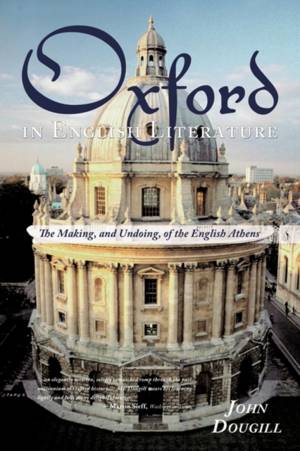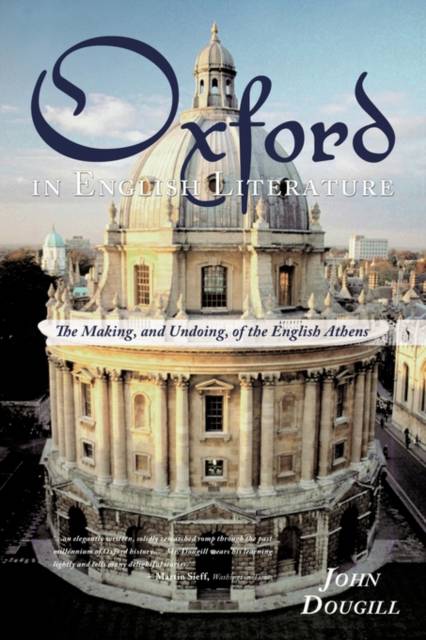
- Retrait gratuit dans votre magasin Club
- 7.000.000 titres dans notre catalogue
- Payer en toute sécurité
- Toujours un magasin près de chez vous
- Retrait gratuit dans votre magasin Club
- 7.000.0000 titres dans notre catalogue
- Payer en toute sécurité
- Toujours un magasin près de chez vous
Oxford in English Literature
The Making, and Undoing, of the English Athens
John Dougill
Livre broché | Anglais
25,95 €
+ 51 points
Description
As 'the English Athens', Oxford has long been central to the country's cultural life. For over six centuries the city has been lauded, slighted and analysed in the pages of English literature. While it has been hailed as a bastion of excellence, beauty and truth on the one hand, it has also been denigrated for its elitism, exclusivity and insularity on the other. Oxford in English Literature provides for the first time a detailed overview of the literary representations, ranging from Chaucer's account of medieval students to modern-day detective stories. The book begins with the legend of the eighth-century Princess Frideswide, the city's patron saint. Praise for an English Athens first arose in the glad springtime of Elizabethan times, and after the disruptions of the Civil War the university settled back on its laurels, leading to the virulent denunciations of the eighteenth-century. The popularity of the Oxford Novel in the early nineteenth century coincided with a Romantic upsurge in affection for the university, culminating in Matthew Arnold's eulogy and the Oxford Myth of the early twentieth century. The underlying argument of Dougill's work is that the defining symbol of the literature is as much the college wall as the dreaming spire, for writings about Oxford have been shaped by the enclosed nature of the collegiate structure. In literary terms it was depicted as a world of its own - secluded, conservative, and eccentric. Idealised, it became a cloistered utopia, an Athenian city-state, or an Arcadian idyll. The privileged circumstance led to resentment from those on the outside, first evident in Thomas Hardy's Jude the Obscure. With greater egalitarian and meritocratic values in the twentieth century, élitism came under attack and with it the notion of a sheltered paradise. At the same time the loosening of college ties led to diversification as writers turned to previously unexamined parts of the city. Oxford in English Literature is aimed at the general reader and is not burdened by specialist jargon or theory. Its familiar subject and specially commissioned illustrations make this a compelling book for anyone interested in Oxford, and in English literature in general. Alice in Wonderland, Brideshead Revisited, Oscar Wilde, J.R.R. Tolkien, C.S. Lewis, Inspector Morse, Philip Pullman -Oxford is a literary treasure trove. This entertaining account guides the reader through the wealth of material in an informative and illuminating manner.
Spécifications
Parties prenantes
- Auteur(s) :
- Editeur:
Contenu
- Nombre de pages :
- 392
- Langue:
- Anglais
Caractéristiques
- EAN:
- 9781438976839
- Date de parution :
- 15-10-10
- Format:
- Livre broché
- Format numérique:
- Trade paperback (VS)
- Dimensions :
- 152 mm x 229 mm
- Poids :
- 571 g

Les avis
Nous publions uniquement les avis qui respectent les conditions requises. Consultez nos conditions pour les avis.






